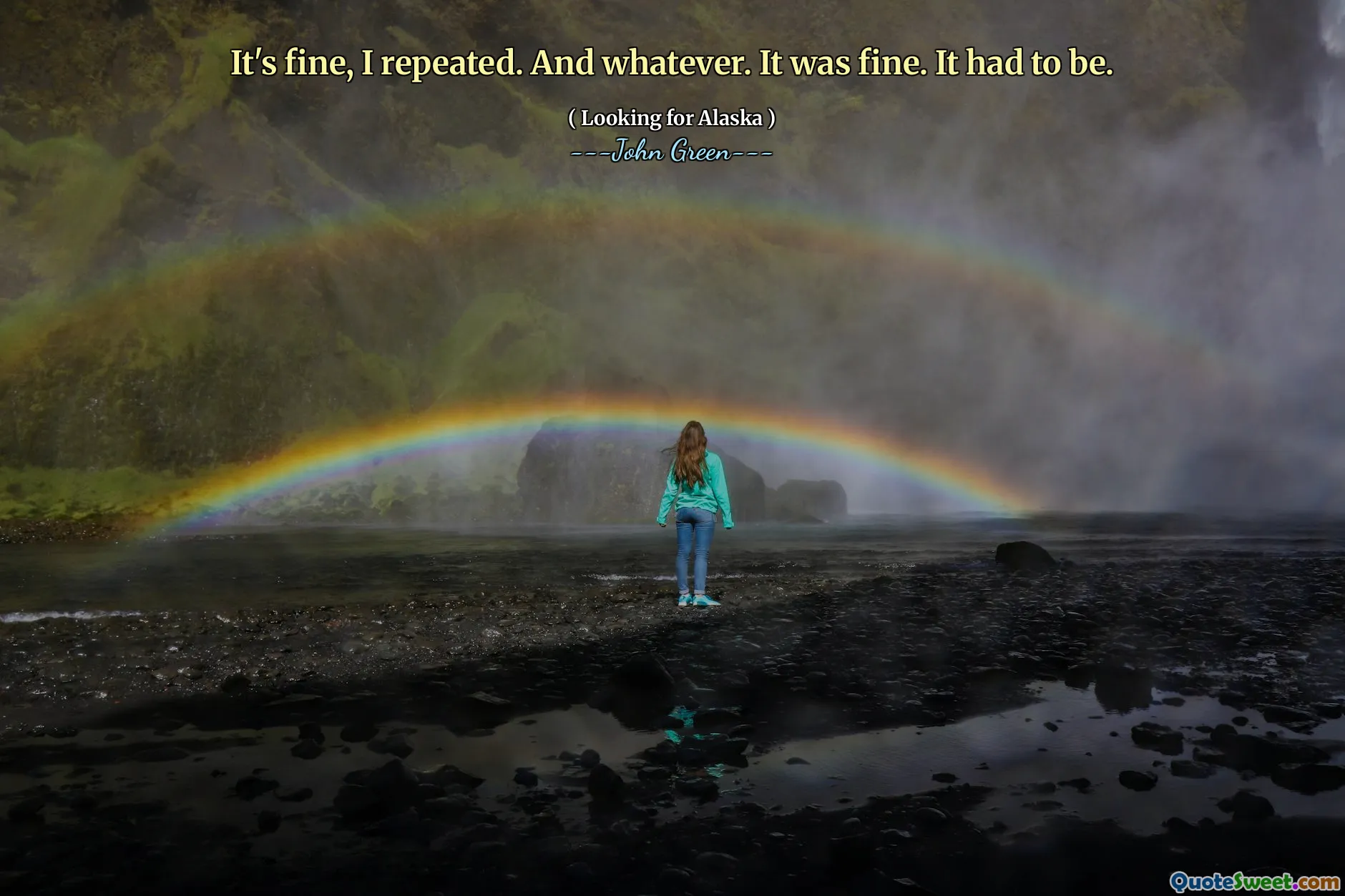
It's fine, I repeated. And whatever. It was fine. It had to be.
This quote embodies a complex blend of resignation and self-reassurance that many can relate to in moments of uncertainty or discomfort. The repetition of "It's fine" suggests a kind of internal dialogue—a mantric effort to convince oneself amidst doubt or emotional turmoil. The phrase "And whatever" adds a layer of ambiguity, hinting at a casual or dismissive attitude as if trying to shrug off something deeper or more troubling. Yet the final line, "It had to be," uncovers an almost fatalistic acceptance, a surrender to circumstances as if no alternative was possible. From a psychological perspective, this can be seen as a coping mechanism, where the mind accepts a difficult reality by convincing itself that things are "fine" to reduce anxiety or cognitive dissonance. In literature, such expressions often reveal a character's inner conflict or pain masked behind indifferent words. This quote from Looking for Alaska captures a poignant human truth: sometimes, facing the necessity of a situation is the first step toward coming to terms with it, even if the reality isn't ideal. John Green’s subtle writing here encapsulates the struggle of youth—trying to navigate feelings, the pressure of choices made or circumstances encountered, and the bittersweet nature of acceptance. It is a quiet, relatable moment of surrender that resonates with anyone who has had to convince themselves that the outcome, however unsatisfying, was inevitable and thereby acceptable.










